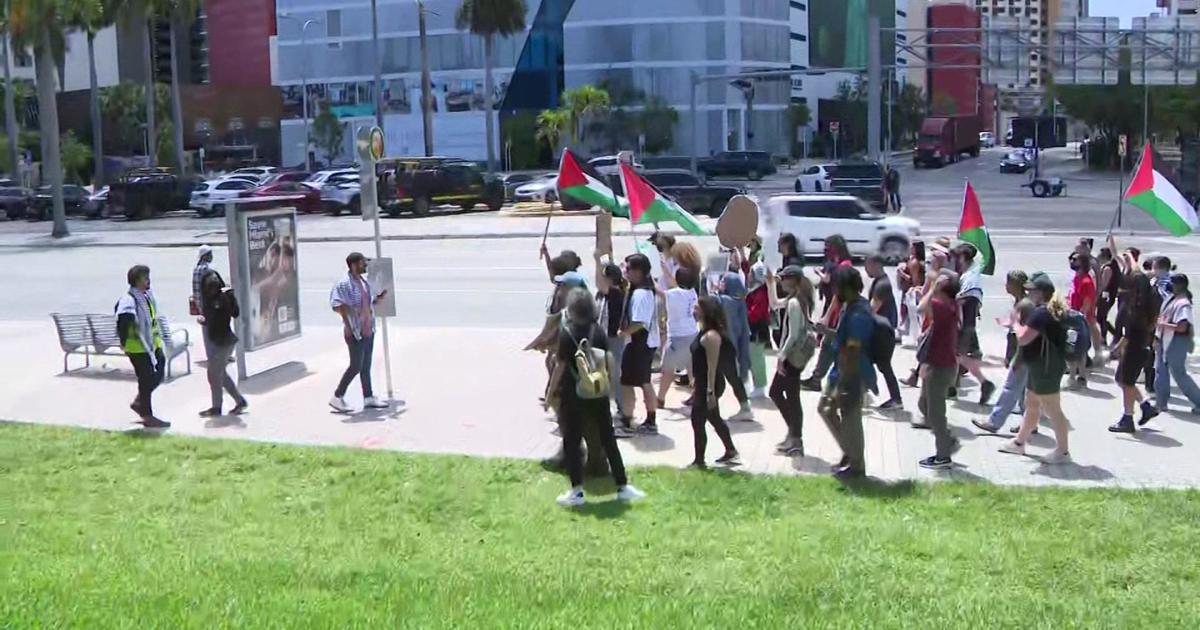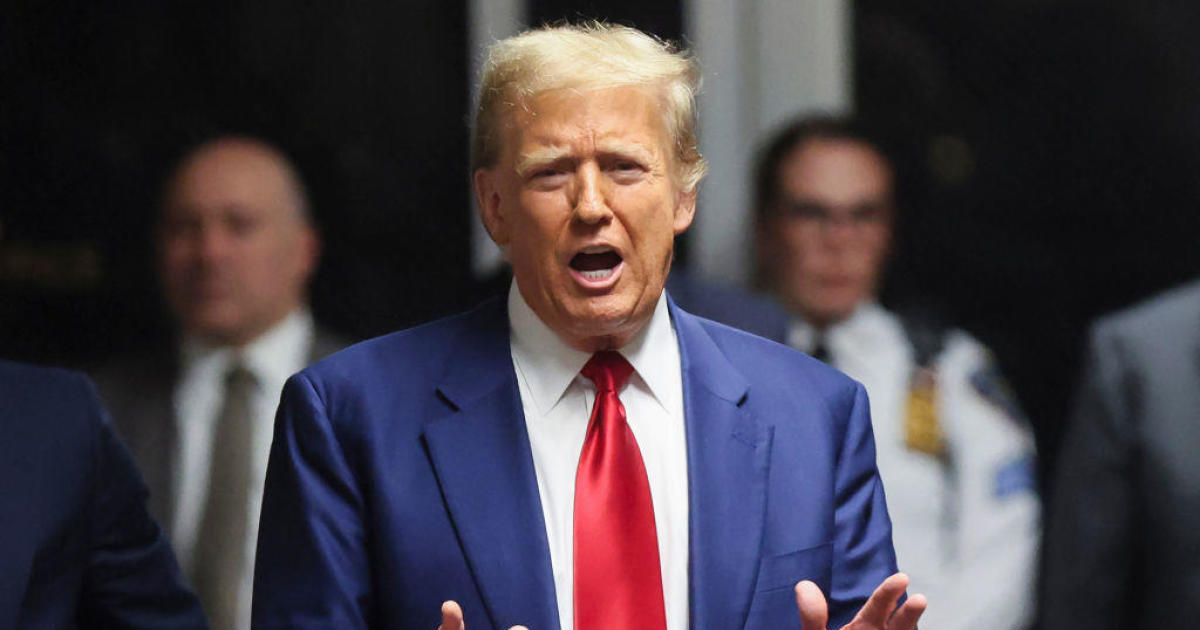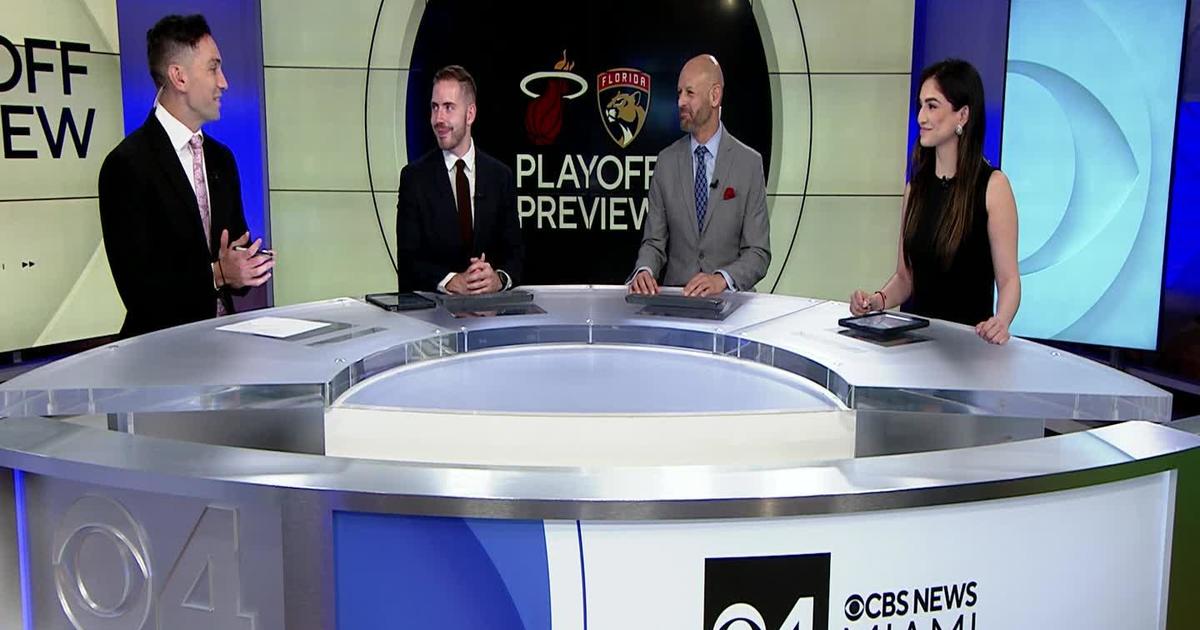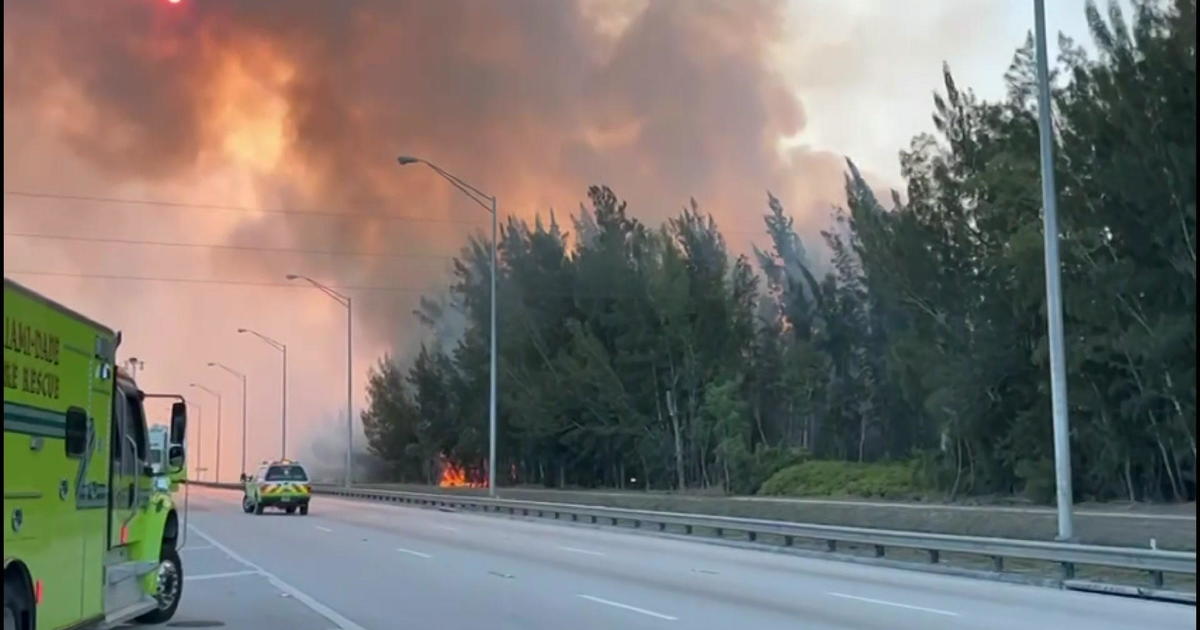Florida Among States Looking To Tighten Voting Rules
MIAMI (CBSMiami/AP) — Critics have said Florida has had its share of voting issues in the past, now the state is among many with lawmakers looking to create a better reputation.
Emboldened by the Supreme Court decision that struck down the heart of the Voting Rights Act, a growing number of Republican-led states are moving aggressively to tighten voting rules. Lawsuits by the Obama administration and voting rights activists say those efforts disproportionately affect minorities.
At least five Southern states, no longer required to ask Washington's permission before changing election procedures, are adopting strict voter identification laws or toughening existing requirements.
Texas officials are battling the U.S. Justice Department to put in place a voter ID law that a federal court has ruled was discriminatory. In North Carolina, the GOP-controlled Legislature scaled back early voting and ended a pre-registration program for high school students nearing voting age.
Nowhere is the debate more heated than in Florida, where the chaotic recount in the disputed 2000 presidential race took place.
Florida election officials are set to resume an effort to remove noncitizens from the state's voting rolls. A purge last year ended in embarrassment after hundreds of American citizens, most of whom were black or Hispanic, were asked to prove their citizenship or risk losing their right to vote.
Republican leaders across the South say the new measures are needed to prevent voter fraud, even though such crimes are rare. Democrats and civil rights groups say the changes are political attacks aimed at minorities and students — voting groups that tend to lean toward Democrats — in states with legacies of poll taxes and literacy tests.
In North Carolina, for example, a state board of elections survey found that more than 600,000 registered voters did not have a state-issued ID, a requirement to vote under the state's new law. Many of those voters are young, black, poor or elderly.
"We're in the middle of the biggest wave of voter suppression since the Voting Rights Act was enacted," said Katherine Culliton-González, director of voter protection for the Advancement Project, a Washington-based civil rights group that has undertaken legal challenges in several states.
For five decades, states and localities with a history of discrimination had to submit all election laws, from new congressional district maps to precinct locations and voting hours, to federal lawyers for approval. That practice ended in June when the Supreme Court struck down the provision in the Voting Rights Act as outdated.
Voting rights groups said recent actions by Southern states highlight the need for Congress to retool the rejected sections of the landmark 1965 law that were credited with ensuring ballot access to millions of blacks, American Indians and other minorities.
The administration is using the remaining parts of the law to bring court cases.
When Attorney General Eric Holder announced a suit last month to place Texas under federal supervision again, he said the Justice Department would not allow the high court's decision "to be interpreted as open season for states to pursue measures that suppress voting rights."
Gov. Rick Scott, R-Fla., has defended the planned voter purge, saying his state has an obligation to maintain the integrity of the vote.
"I care about your sacred right to vote," he said. "Your sacred right to vote should not be diluted by somebody who does not have the right to vote."
The effort has become a campaign issue as the governor seeks re-election next year. Former Gov. Charlie Crist, who is widely expected to challenge Scott as a Democrat, has called the move "unconscionable," and Democrats have painted the action as an attempt to rally conservatives and disenfranchise Democratic voters.
The state also is running into resistance from county election supervisors, who are the only ones with the power to remove voters from the rolls. The local officials say they are wary of another effort targeting noncitizens after last year's botched campaign.
"They did a sloppy, slap-dash effort, and the voters were the victims," said Lori Edwards, the supervisor of elections in Polk County and president of the Florida State Association of Supervisors of Elections.
In 2012, the state's initial list of 180,000 potential noncitizens, culled from a comparison of drivers' licenses and voter registration data, was pared back to 2,600 names. But when election supervisors contacted those on the list, they found many were citizens.
One was Murat Limage, 45, a Haitian-American taxi driver from Tampa. He had come from Haiti to join his family in Florida in 1999 and he became a naturalized citizen in 2010. When he received a letter from the county elections department, he said he was worried authorities wanted to revoke his citizenship.
After producing his passport for a county official, he said he was told no further action was necessary. Limage said the experience stirred the same anger he felt as a young man when he watched footage of the Haitian military gun down citizens waiting to vote in that country's presidential election.
"I came here for my freedom and they tried to take it away from me," he said. "You don't have to use guns or killing. But it's the same thing."
The state was ordered to halt its effort after Limage and several voting rights groups sued, allegingFlorida had violated the Voting Rights Act.
State officials apologized and said the mistakes arose from using a database of drivers' licenses to check names. This year, the state will use a more reliable federal immigration database it sued to gain access to.
Secretary of State Ken Detzner will go around Florida next month to hear the concerns of county election supervisors.
In an interview, Detzner said he was fulfilling the duties of his office by ensuring clean voter rolls. He dismissed the arguments of critics, including election supervisors, who say the state has yet to provide any evidence of widespread voter fraud.
"It's not a matter of scope. It's a matter of following the law," Detzner said.
As for voter fraud, he said: "I haven't seen any evidence from any other parties that it's not a problem. Until we investigate and process the names of all people on the voting list, how do we know?"
(TM and © Copyright 2013 CBS Radio Inc. and its relevant subsidiaries. CBS RADIO and EYE Logo TM and Copyright 2013 CBS Broadcasting Inc. Used under license. All Rights Reserved. This material may not be published, broadcast, rewritten, or redistributed. The Associated Press contributed to this report.)



